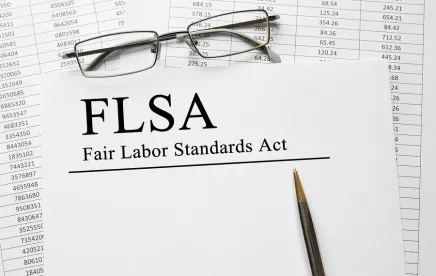A recent decision from the Third Circuit Court of Appeals involving the nature of the evidence sufficient to create a jury question on willfulness has carved out additional guidance for employers defending against Fair Labor Standards Act (FLSA) lawsuits. Though the FLSA generally applies a two-year statute of limitations, the limitations period can be extended to three-years for willful violations of the Act. That extra year means more dollars in a plaintiff’s pockets.
On September 20, 2017, a three-judge panel upheld the ruling of a district judge from the Middle District of Pennsylvania who granted the County’s motion for a directed verdict on the question of willfulness. In Souryavong v. Lackawanna County, two employees brought suit under the FLSA, arguing that although each of their part-time positions did not result in overtime hours, their combined hours well exceeded 40 hours per workweek. The only issue at the November 2015 trial was whether the violations were willful.
To support their argument, the employees’ evidence at trial was limited to testimony from two witnesses that the County was “generally aware” of its obligations, and an internal email that was circulated with the subject line “County wage and hour issues” discussing certain employees who were working second-jobs in excess of 40 hours per week. In granting the County’s motion for a directed verdict at trial, the Judge stated that the “employees’ evidence did not ‘measure up.’” The Third Circuit agreed.
“Willfulness” as defined by the Supreme Court includes situations where the employer knew its conduct was prohibited at the time of the FLSA violation or where the employer demonstrates a “reckless disregard” for the matter.
Despite there being evidence that the County was “generally aware” of its obligations under the FLSA, that alone was insufficient to create a genuine issue of fact for the jury. For the jury to rule on the issue of willfulness, the evidence must have established that the County was specifically aware of the two-job overtime issue as it related to the employees – prior to the dates of the violations.
In contrast, the Third Circuit referred to instances where its sister circuits allowed the question of willfulness to reach a jury: Flores v. City of San Gabriel, 824 F.3d 890 (9th Cir. 2016) (finding a jury question of “willfulness” where a city is aware of the FLSA requirements and has a system in place to classify pay and benefits, yet continues to allow a misclassification of a monthly payment for nine years); Davila v. Menendez, 717 F.3d 1179 (11th Cir. 2013) (finding a jury question of willfulness where a family fails to pay a nanny minimum wage, admits to knowing about the minimum wage laws, and where the family instructed the nanny to lie about her employment and the hours worked). Here, the Third Circuit could find no such level of egregiousness so as to send the issue to the jury.
The question of willfulness is a hot-button issue in the context of FLSA claims. The decision in Souryavong serves to further limit the kinds of factual scenarios when the statute of limitations for FLSA claims is extended to three years.





 />i
/>i
